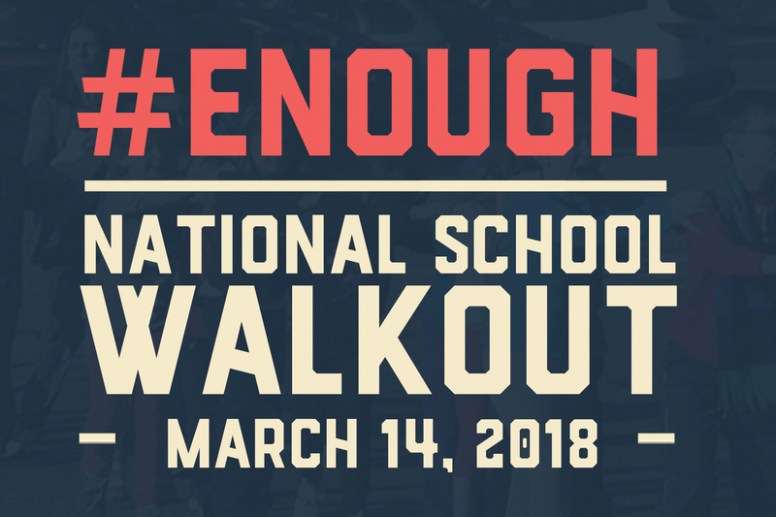Ryan Denham
WGLT
Ellie Diggins and her friends can’t drive a car. They can’t vote. They’re not even in high school yet. But they want to influence the public debate over gun violence.
Diggins is an eighth-grader at Kingsley Junior High School in Normal. Along with friends Ari Whitlock, Courtney Sims, and Maddie Beirne, they’re planning a school walkout demonstration March 14 as part of a nationwide movement sparked by the recent shooting in Parkland, Florida. They were inspired in part by the young Florida survivors who’ve lobbied publicly for stricter gun control.
Beirne said she moved to act after seeing the names and ages of those killed in Florida. Many of them were 14, just like her.
“I’m just kind of watching and wondering if my school is going to be the next one that’s going to be shot up or terrorized in some way,” Beirne said. “And I feel like I shouldn’t be afraid of that. I feel like I should be worried more about my next social studies quiz or what high school is going to be like next year, as opposed to whether or not I’m going to die when I walk into (school).”
At 10 a.m. on Wednesday, March 14, the four friends and other students say they will walk out of class, then out the front door at Kingsley. They’ll hold signs during a mostly silent protest (so they’re not disruptive) focused on more gun control.
They want to see universal background checks, a full ban on bump stocks and assault weapons, and additional measures to stop those with mental illness from buying weapons, said Whitlock. They also hope to attract the attention of state lawmakers like state Rep. Dan Brady and Sen. Jason Barickman, who’ve visited their school before.
“We’ll be high schoolers next year, and after that we’ll be adults, and we’ll be voting,” said Diggins, who created an online RSVP for the event. “And right now we can’t hold office. But we want to change things that people in office can change.”
Sims said she wants to make a difference, regardless of her age, noting the impact the Florida survivors have had on the public debate around guns.
“I personally think it’s quite inspiring to see kids as young as we are stand up for themselves and try to make a difference in the world,” Sims said.
Whitlock agreed. During an interview with GLT, Whitlock name-dropped several court rulings and laws that she says gives the students precedent to act.
“I feel that the youngest generation can always make the most change. We’re taking control of our futures. Just because we’re not old enough to vote yet doesn’t mean we have no say,” Whitlock said.
Ellie Diggins’ mom, Aleda, said she was very proud of what her daughter was doing.
She said they’ve talked about what happens if she’s disciplined for organizing the walkout. (Unit 5 Superintendent Mark Daniel said last week that peaceful protesters who are not disruptive will not be disciplined, calling it a learning opportunity.)
“She has decided it’s worth it. And I back her on it,” Aleda Diggins said.
Demonstrations are expected at both Unit 5 high schools as well as Bloomington High School on March 14. Another rally on gun control is planned for March 24.











